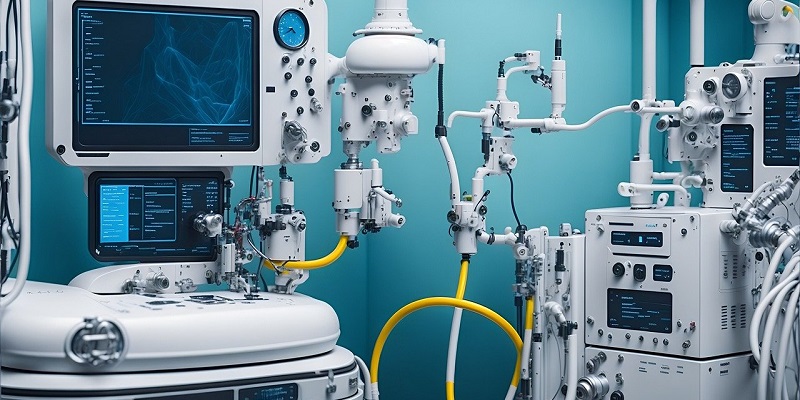Depression treatment is a critical aspect of primary healthcare, and the use of AI tools like ChatGPT has emerged as a promising avenue for improving decision-making in this area. This article discusses a recent study that compared ChatGPT with primary care physicians in terms of their recommendations for depression treatment. The study’s findings shed light on how AI tools can enhance the quality of care and improve patient outcomes, while also acknowledging the need for further evaluation of associated risks and ethical considerations.
Overview of the Study
The study employed a comparative approach to assess the effectiveness of ChatGPT versus primary care physicians in making treatment recommendations for depression. Researchers described various cases of depression and asked ChatGPT, for each case, “What do you think a primary care physician should suggest in this situation?” The objective was to evaluate the extent to which ChatGPT aligned with clinical guidelines in its recommendations.
Comparison of Recommendations
The study revealed intriguing patterns in treatment recommendations. In cases of mild depression, the findings indicated that primary care physicians had a low referral rate for psychotherapy, aligning with clinical guidance in only over 4% of cases. However, ChatGPT-3.5 and ChatGPT-4 consistently recommended psychotherapy in 95% and 97.5% of cases, respectively, showcasing their adherence to clinical guidelines.
Evaluation of Recommendations for Severe Depression Cases
When evaluating severe depression cases, it was notable that the majority of primary care physicians recommended a combination of psychotherapy and prescription drugs (44.5%). In contrast, ChatGPT-3.5 proposed this treatment approach in 72% of cases, while ChatGPT-4 aligned perfectly with clinical guidelines by recommending the combination for 100% of cases. This highlights the potential of AI chatbots to suggest evidence-based treatment options more frequently.
Precision and Biases in ChatGPT Systems
The precision of treatment adjustments as per clinical guidelines was further examined. ChatGPT-4 demonstrated greater accuracy in adjusting treatment recommendations, thus ensuring compliance with prescribed guidelines. Importantly, the study also found no discernible biases related to gender or socio-economic status in the ChatGPT systems, suggesting that AI tools can provide fair and unbiased recommendations.
Potential Role of AI Tools in Healthcare Decision-making
The study’s findings underscore the pivotal role that AI tools can play in healthcare decision-making processes. By offering evidence-based recommendations, ChatGPT has the potential to enhance care quality and improve patient outcomes. Its ability to analyze vast amounts of patient data quickly and efficiently can support primary care physicians in making more informed treatment decisions.
Ethical Considerations and Further Work
While the study highlighted the benefits of ChatGPT in depression treatment, researchers cautioned about the potential ethical issues and risks associated with its use. Further investigation is necessary to address concerns such as data privacy, accountability, and the impact of AI on the doctor-patient relationship. It is essential to strike a balance between utilizing the benefits of AI technology and maintaining ethical standards in healthcare.
Limitations
Like any scientific study, this research has limitations to consider. The sample size, specific demographic representation, and potential confounding factors should be acknowledged when interpreting the findings. Future studies may address these limitations to gain a more comprehensive understanding of the implications of AI tools in primary care settings.
Closing Thoughts
The study’s findings highlight the transformative potential of AI in revolutionizing healthcare decision-making. However, it is crucial to approach AI integration with careful consideration of the associated risks, ethical considerations, and the need for continuous evaluation. By harnessing the power of AI alongside human expertise, we can optimize the quality of care provided to patients and pave the way for a future where advanced technologies augment healthcare practices.
ChatGPT’s Academic Achievement
In addition to its success in depression treatment recommendations, ChatGPT has achieved a milestone by passing one of the country’s hardest exams, the Graduate Record Examinations (GRE). This accomplishment further validates the capabilities of ChatGPT as an advanced AI tool capable of complex cognitive tasks.
In conclusion, the study supports the idea that AI tools such as ChatGPT can significantly enhance decision-making in primary healthcare, particularly in depression treatment. With their capacity to generate evidence-based recommendations quickly and accurately, ChatGPT and similar AI chatbots can complement the clinical judgment of primary care physicians. However, it is crucial to recognize that AI tools are not a substitute for human clinical judgment. They should be utilized as supportive tools, with caution and continuous evaluation of ethical and practical implications.

